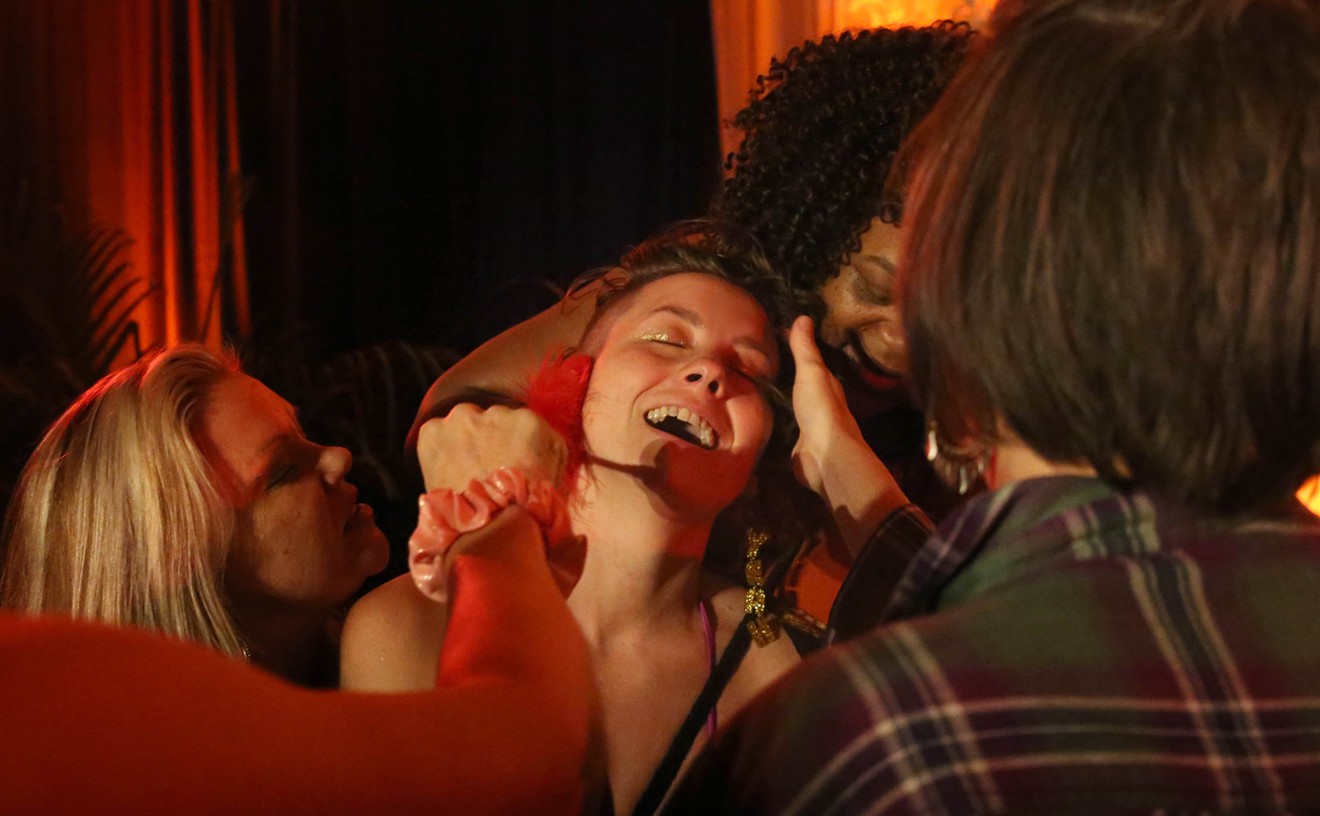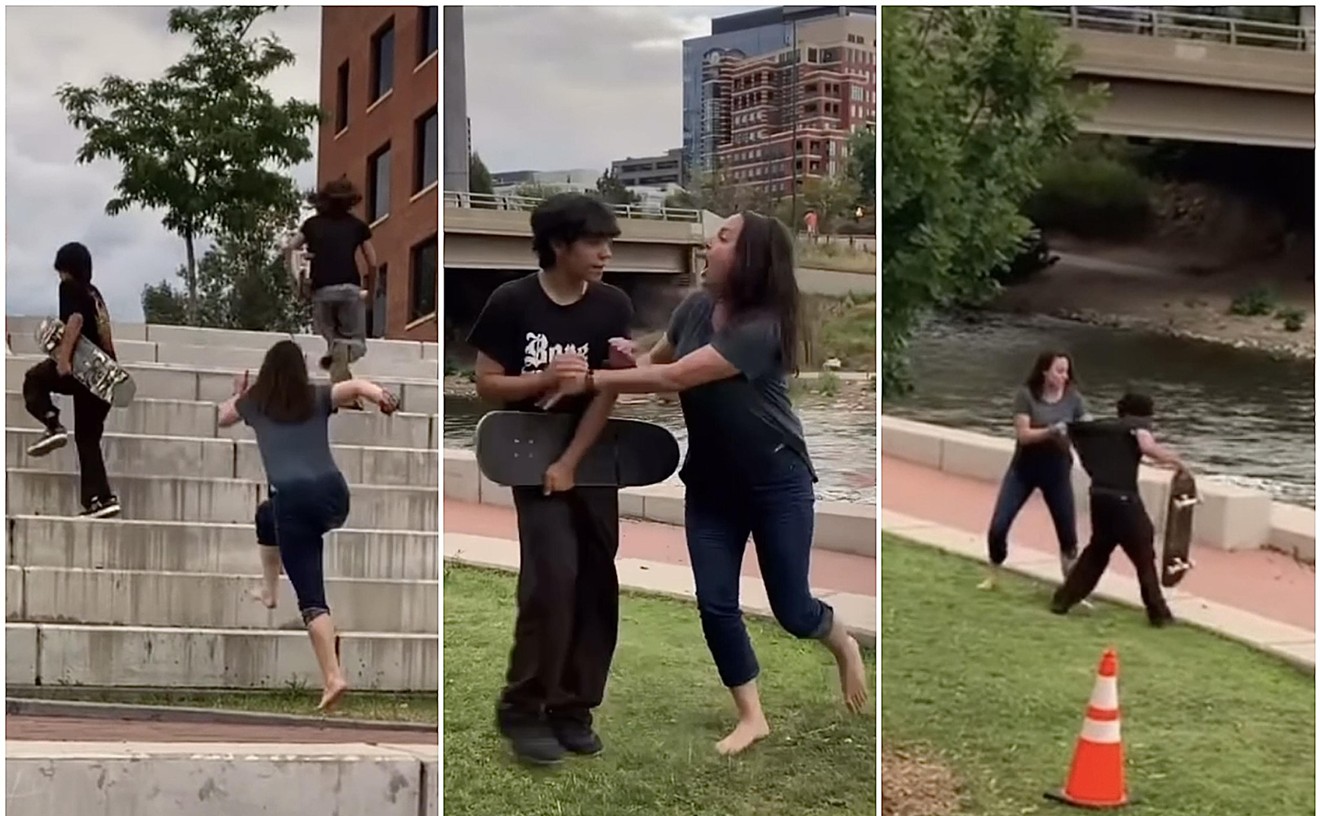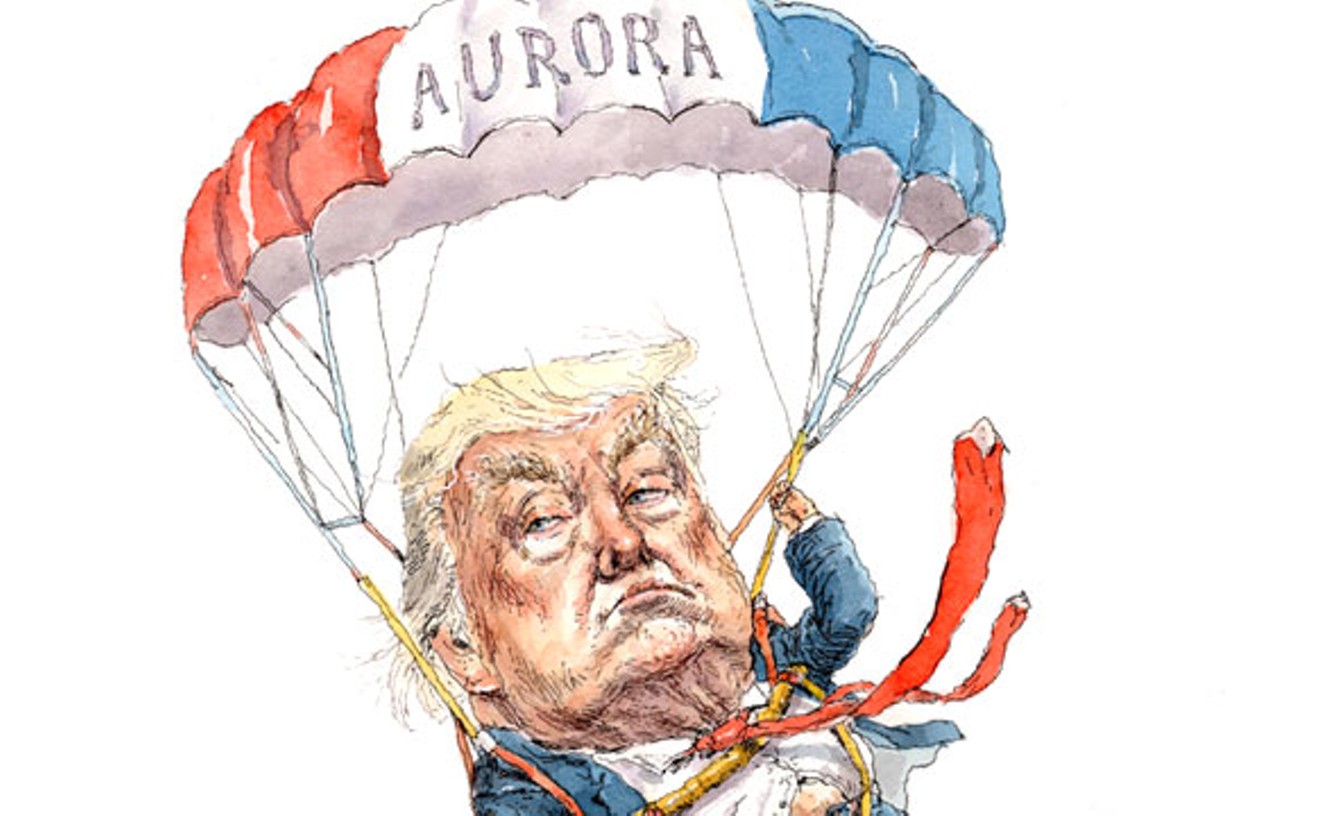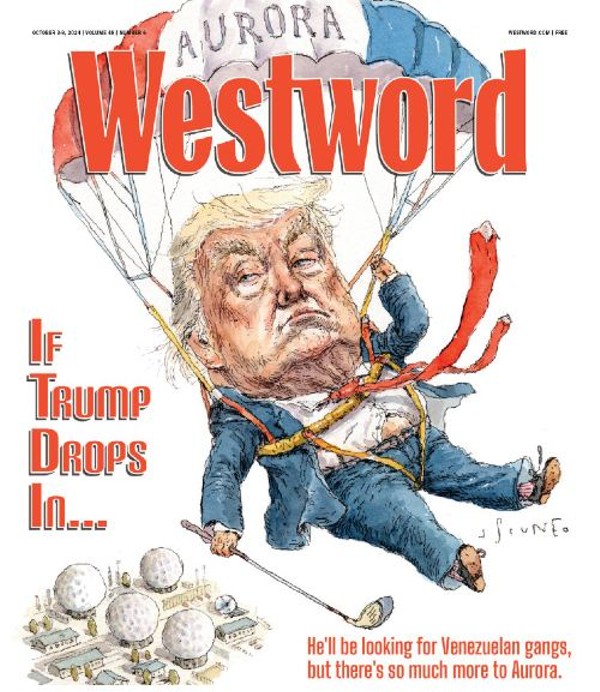On October 13, three Colorado Springs residents huddled around a phone and told Colorado Springs City Council members why the town should decriminalize psychedelic plants. It was an unlikely pitch for the Springs, a conservative spot that has so far opted against legalizing recreational marijuana sales.
But Anthony Caballero, a 28-year-old combat veteran who founded Decriminalize Nature Colorado Springs, knew his audience. "I had to make the approach military-friendly," says Caballero, who spoke first and described how he had used psychedelics to help cure his post-traumatic stress disorder after he was deployed to Afghanistan close to a decade ago.
Caballero was followed by 32-year-old Zac Short, who'd served as a combat medic in Afghanistan and healed his own PTSD using psychedelic mushrooms. After that came Eric Kawczynski, who grew up in El Paso County; he talked about the medicinal benefits of psychedelics and why people should not be criminalized simply for using natural substances as medicine.
They wouldn't have been surprised if all of their arguments had fallen on deaf ears. But then Richard Skorman, president of the council, said something that made their jaws drop.
"Just as a side story, me personally, my sister-in-law had a terrible case of cancer," Skorman said. "She was predicted to not live and went through a lot of trauma, was able to survive, and she became part of a study at Columbia University on psilocybin mushrooms, and it was something that was nationally recognized, and it was, again, something that helped her tremendously, so it has affected my family as well. I appreciate everyone coming forward."
"We were jumping up and down and screaming like chicks at a concert," recalls Short. "Hearing the president speak with such conviction in his voice, it was just beyond words, and beyond what we could have possibly hoped for."
After hearing Skorman's positive reaction, the three plan to continue pushing the city to decriminalize entheogens, natural psychoactive substances such as psilocybin mushrooms and mescaline. Psilocybin is currently illegal, labeled a Schedule I substance under the Controlled Substances Act.
Their efforts are building off years of advocacy work around the country. In May 2019, Denver voters decided by a thin margin to decriminalize psychedelic mushrooms. Not long after, the city councils of Oakland and Santa Cruz, California, voted to decriminalize certain natural psychedelics. And this past September, the city council of Ann Arbor, Michigan, voted to decriminalize entheogens.
On November 3, Oregon voters will weigh in on ballot measures related to regulating psychedelics and decriminalizing drugs, while Washington, D.C., residents voted on whether to decriminalize entheogens.
But advocacy efforts in Colorado Springs definitely face an uphill battle. While the council could pass its own decriminalization measure, it would need six votes to do so, and would then face a potential veto by Mayor John Suthers, a Republican who was formerly Colorado's attorney general. Meanwhile, in July, the council voted five to four against referring a recreational marijuana sales measure to the ballot.
Skorman, who voted in favor of that proposal, notes that new councilmembers could be elected in April 2021. He hasn't said yet whether he's going to run for re-election, but he says he's definitely open to decriminalization. "I’m not a fan of draconian drug laws at all," Skorman explains.
Nor or the members of Decriminalize Nature Colorado Springs, who don't limit their arguments to medical uses for military vets.
"Why should we, as free-born Americans, be threatened with imprisonment, threatened with losing everything we’ve worked so hard to have, to pursue a medication that can help us and make us fundamentally better people?" asks Kawczynski, a 25-year-old who just quit his job at a major mining corporation so that he didn't have to worry about speaking freely about decriminalization.
That argument may not win over Suthers, who opposes allowing recreational marijuana sales and doesn't seem keen on the idea of decriminalizing entheogens. "The mayor does not support illegal drug use or the legalization of drugs for general sale," says Jamie Fabos, a spokesperson for Colorado Springs. "He would defer to the FDA on whether it would be beneficial to approve such drugs for medical use under the supervision of a physician."
Skorman sees some flexibility in the mayor's remarks.
"What the mayor said was probably something that would resonate with other councilmembers as well. Maybe there is a good medical use that would be valuable," says Skorman. "It’s certainly possible, especially if there are people from the medical profession who come forward. I think that’s the group that can come forward to say this can help with PTSD and other mental health issues."
And after their first interaction with Colorado Springs City Council, Caballero and company plan to continue coming forward.
"That was the first step," Caballero says, "and it was quite the monumental first step, in my opinion."

Audio By Carbonatix
[
{
"name": "Air - MediumRectangle - Inline Content - Mobile Display Size",
"component": "12017618",
"insertPoint": "2",
"requiredCountToDisplay": "2",
"watchElement": ".fdn-content-body",
"astAdList": [
{
"adType": "rectangle",
"displayTargets": "mobile"
}
]
},{
"name": "Editor Picks",
"component": "17242653",
"insertPoint": "4",
"requiredCountToDisplay": "1",
"watchElement": ".fdn-content-body",
"astAdList": [
{
"adType": "rectangleLeft",
"displayTargets": "desktop|tablet"
},{
"adType": "rectangleRight",
"displayTargets": "desktop|tablet|mobile"
}
]
},{
"name": "Inline Links",
"component": "18838239",
"insertPoint": "8th",
"startingPoint": 8,
"requiredCountToDisplay": "7",
"maxInsertions": 25
},{
"name": "Air - MediumRectangle - Combo - Inline Content",
"component": "17261320",
"insertPoint": "8th",
"startingPoint": 8,
"requiredCountToDisplay": "7",
"maxInsertions": 25,
"watchElement": ".fdn-content-body",
"astAdList": [
{
"adType": "rectangleLeft",
"displayTargets": "desktop|tablet"
},{
"adType": "rectangleRight",
"displayTargets": "desktop|tablet|mobile"
}
]
},{
"name": "Inline Links",
"component": "18838239",
"insertPoint": "8th",
"startingPoint": 12,
"requiredCountToDisplay": "11",
"maxInsertions": 25
},{
"name": "Air - Leaderboard Tower - Combo - Inline Content",
"component": "17261321",
"insertPoint": "8th",
"startingPoint": 12,
"requiredCountToDisplay": "11",
"maxInsertions": 25,
"watchElement": ".fdn-content-body",
"astAdList": [
{
"adType": "leaderboardInlineContent",
"displayTargets": "desktop|tablet"
},{
"adType": "tower",
"displayTargets": "mobile"
}
]
}
]













